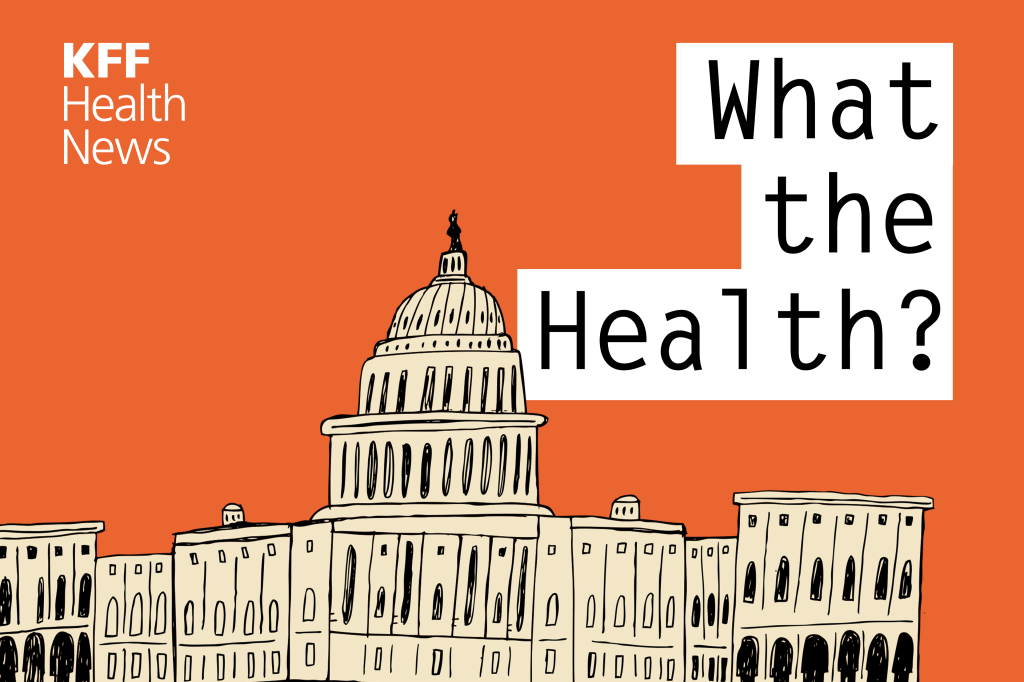The Host
Julie Rovner
KFF Health News
Julie Rovner is chief Washington correspondent and host of KFF Health News’ weekly health policy news podcast, “What the Health?” A noted expert on health policy issues, Julie is the author of the critically praised reference book “Health Care Politics and Policy A to Z,” now in its third edition.
Oct. 1 is the start of the next fiscal year, and unless Congress reaches agreement on continued spending, big parts of the government could shut down that day. Democrats, whose votes will be needed in the Senate, would like Republicans to extend the Biden-era extra tax credits for Affordable Care Act insurance plans as part of a compromise, but so far Republicans don’t seem willing.
Meanwhile, Health and Human Services Secretary Robert F. Kennedy Jr. released his much-anticipated “Make America Healthy Again” blueprint to improve children’s health, but the report contained few specifics on how his goals would be reached.
This week’s panelists are Julie Rovner of KFF Health News, Anna Edney of Bloomberg News, Sandhya Raman of CQ Roll Call, and Lauren Weber of The Washington Post.
Panelists
Anna Edney
Bloomberg News
Sandhya Raman
CQ Roll Call
Lauren Weber
The Washington Post
Among the takeaways from this week’s episode:
Congress has less than three weeks to approve federal government spending for the new fiscal year and avert a shutdown. Democrats are pushing for the legislation to include an extension of enhanced subsidies for those covered by ACA plans, which otherwise will expire at the end of the year and contribute to an increase in premium costs. But that proposal is already getting bogged down in longtime fights over abortion funding.
The Department of Health and Human Services is expected to cite the use of Tylenol during pregnancy in a pending report on the causes of autism — despite a lack of definitive scientific evidence. And the remade Advisory Committee on Immunization Practices is scheduled to meet next week, while some Americans are struggling to access the covid vaccine.
The lack of teeth in the MAHA report — along with the White House’s lengthy review before publication — suggests industry officials helped shape the final product. Plus, its calls for things like healthier meals in schools and hospitals amid federal funding cuts raise an important question: Who will pay for these policy changes?
And the Trump administration is seeking changes to federal regulations on pharmaceutical advertising that could effectively kill drug ads on television, though free-speech rights could complicate that effort.
Plus, for “extra credit” the panelists suggest health policy stories they read (or wrote) this week that they think you should read, too:
Julie Rovner: NPR’s “What Kind of Dairy Does a Body Good? Science Is Updating the Answer,” by Will Stone.
Anna Edney: Bloomberg News’ “The Implants Were Supposed to Dissolve. They Didn’t,” by Anna Edney and Tanaz Meghjani.
Sandhya Raman: The Texas Tribune’s “Texas’ New Parental Consent Law Leaves School Nurses Confused About Which Services They Can Provide to Students,” by Jaden Edison.
Lauren Weber: ProPublica’s “‘Just Let Me Die,’” by Duaa Eldeib.
Also mentioned in this week’s podcast:
The New York Times’ “As Trump Weighs I.V.F., Republicans Back New ‘Natural’ Approach to Infertility,” by Caroline Kitchener.
Credits
Francis Ying
Audio producer
Emmarie Huetteman
Editor
To hear all our podcasts, click here.
And subscribe to KFF Health News’ “What the Health?” on Spotify, Apple Podcasts, Pocket Casts, or wherever you listen to podcasts.
KFF Health News is a national newsroom that produces in-depth journalism about health issues and is one of the core operating programs at KFF—an independent source of health policy research, polling, and journalism. Learn more about KFF.
USE OUR CONTENT
This story can be republished for free (details).










